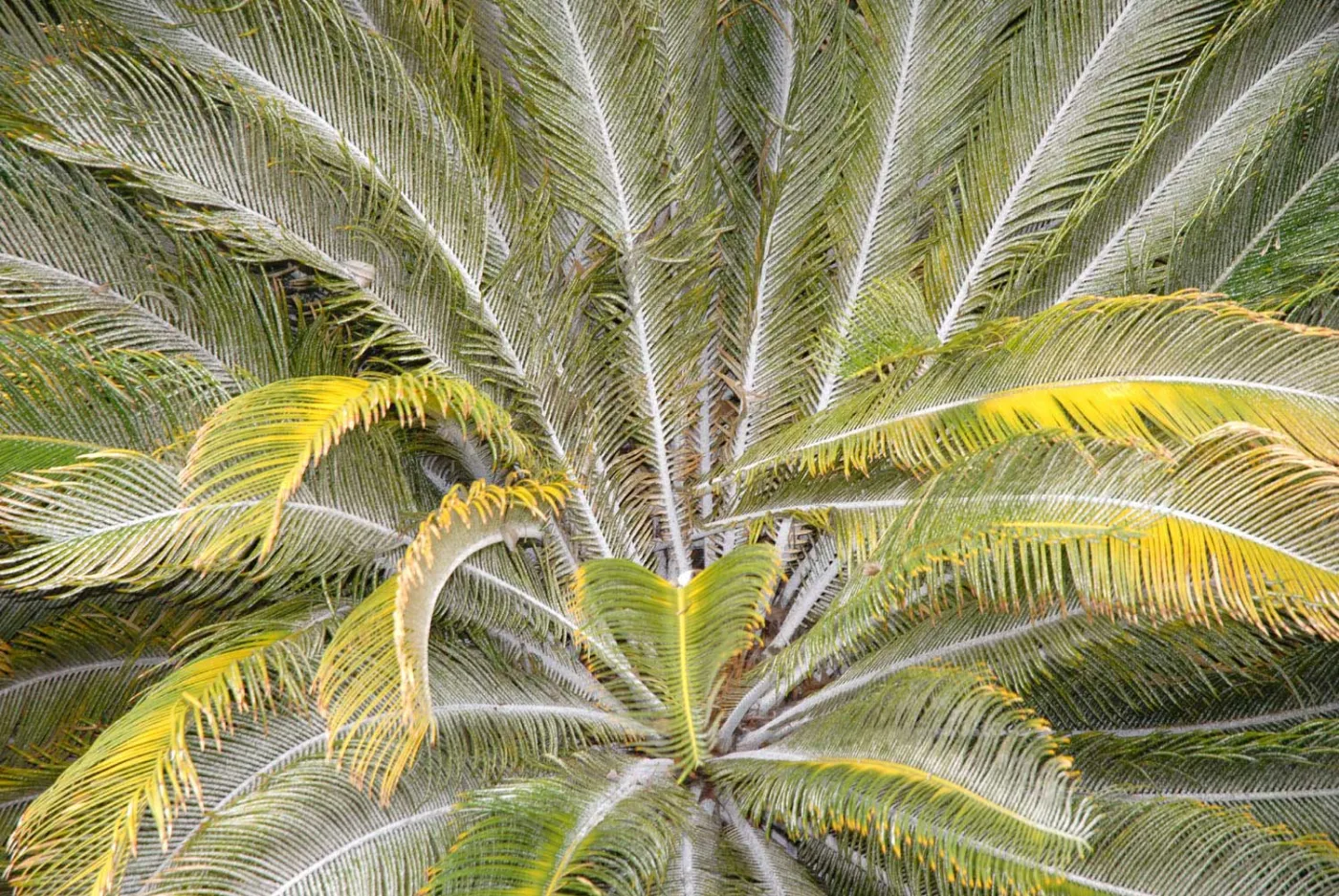When hearing the word “scale,” someone might think of scales on reptiles. It is not that far off for comparison. Cycad scales grow under a wax covering resembling reptilian scales.
There are many species of plant-scale insects. Asian cycad is one of the most common scale insects that infect the Sago Palms by feeding on the bottom of the fronds. These insects are flat and oval and are commonly tan, white, or brown. Scale insects are tiny, as tiny as a pinhead.
Over time Cycad scale will cover the entire plant stems, trunks, and foliage.
The eggs hatch under these scales and become larva or crawlers.
How does the scale cause damage?
Scale insects, specifically the crawlers, suck sap from the Sago Palm. As the crawlers feed on the sap of the plant, it excretes a sticky substance called honeydew.
This honeydew attracts ants, flies, and other insects.
Honeydew also traps fungus spores. The honeydew leads to sooty mold, which looks like black soot and prevents light from getting through to the leaves.
How to identify an infestation?
While scale insect pests are incredibly tiny, the “scales” are easy to see.
Check for white or black dots, or scales, on the tops and bottoms of your Sago Palm. On heavily infested Sago Palms, the leaves will look white.
Natural Ornamental Pest Control Treatments To Get Rid of Scale
Effectively, natural treatments only prolong the life of the Sago, and are not effective in stopping the scale infestation. Pruning- heavily infested fronds can be pruned, placed in a sealed bag, and disposed of away from plants. Prune any sick-looking fronds too.
Scraping- If the scale found is not too much, you can scrape it off with a fingernail, or dull object. Note that the scale infestation will return.
Traditional Pest Control Treatment Strategy:
To reduce insecticide use, our team will use horticultural oils in the cooler months to control this common landscape pest. In the warmer months, the best method is systemic insecticides that are soaked into the plant and kill the scale as they suck the sap. Often living in the soil, these insects are not well controlled by contact insecticides. We work around this by using systemic ornamental pest control treatments that move into the plant tissues these scales feed on.
If you need help with Gainesville lawn pest treatments and fertilizer programs, give our team a call or text at (352) 378-5296. We're local and have been serving Gainesville for over 15 years. We look forward to working with you!


